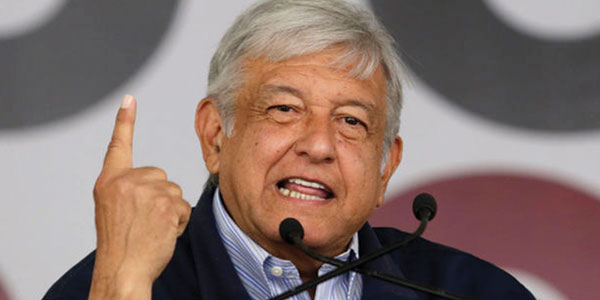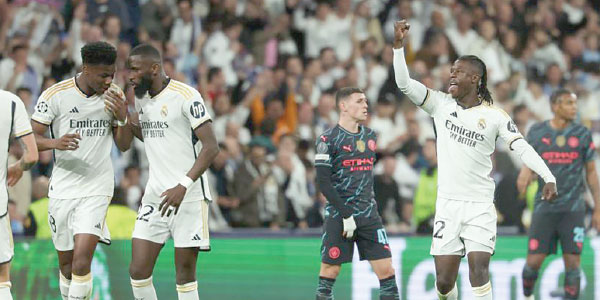
By Jorge Ramos
Why does the Mexican government support the Cuban regime?
When Cuban officials arrived in Mexico earlier this month, the minister of foreign affairs, Marcelo Ebrard, greeted them with an enthusiastic tweet: “A very warm welcome to President Miguel Díaz-Canel [and his team]. … Welcome to Mexico!!!”
Here’s the problem with Ebrard’s tweet: Díaz-Canel isn’t a legitimate president. He’s the leader of a brutal dictatorship, and was hand-picked to succeed the country’s former leader, Raúl Castro. There is no democracy in Cuba; free, multiparty elections haven’t been held in the island nation in over 60 years. Instead, the Cuban people have been forced to obey a succession of dictators: Fidel Castro, his brother Raúl, and now Díaz-Canel.
How is it possible that, in 2019, there are still governments that are reluctant to call Cuba a dictatorship? Despite all the killings, and the political prisoners, and the simple fact that a single political party rules over more than 11 million Cubans?
The latest annual report by the Inter-American Commission on Human Rights notes the “persistent restrictions” on freedom of assembly and expression in Cuba. It also notes that such restrictions “continue to systematically curtail the human rights of the inhabitants of Cuba, in particular, to the detriment of human rights defenders, social and political leaders and independent journalists, as well as Afro-descendants, women and LGBTI people.”
This is the dictatorship that Mexican President Andrés Manuel López Obrador (or AMLO, as he’s known) refuses to criticize.
An interview I conducted with AMLO in 2017, before he became president, may shed some light on his reasons for protecting Cuba’s aging authoritarian regime. At the time, Raúl Castro was still the tyrant in power.
“Can we call Raúl Castro a dictator now?” I asked AMLO.
“I wouldn’t call him that,” he replied.
I said: “Mr. López Obrador, Cuba has been a dictatorship since 1959. [Raúl] was hand-picked by Fidel in 2008. You used to complain about hand-picked leaders in Mexico. Why, then, aren’t you willing to talk about hand-picked leaders in Cuba?”
“Look,” he said, “those are phobias; I think you are wearing your journalist hat. You are entitled to ask these questions. I also have the right not to engage in these issues.”
AMLO said he didn’t want to criticize other countries so that they wouldn’t “mess with us.” But such passivity in the face of human rights violations only emboldens dictators.
The truth is that change will only come to Cuba if it is driven by the Cuban people.
The BBC recently released a documentary podcast about Cuba’s digital revolution, which I highly encourage you to listen to. When it comes to electronic communications, Cuba has lagged far behind its neighbors in the Western Hemisphere. Yet even though internet access on the island is expensive, connection speeds are slow (only 3G is available) and censorship remains a major concern, young people are finding ways to get hold of the information their government tries to hide.
The Cuban dictatorship is losing its grip on the nation’s social media. And that may be the key to bringing about real change in the country.
Recently, a 1-year-old Cuban girl died after receiving a vaccine, and the news went viral. The resulting outrage forced Díaz-Canel — in a rare acknowledgment of a national crisis by a Cuban leader — to tweet in response: “Painful loss of baby Paloma. Our condolences to the grieving parents. … Political manipulation by opponents is offensive and hurtful.” Yet if the Cuban state controls everything, then surely it is to blame for Paloma’s death.
Cuba provides the worst example for Mexico, or any other Latin American country, to follow. It’s outrageous that human rights advocates in Mexico have suddenly decided to keep quiet and say not a word about the Havana regime.
But everything changes eventually. Even in a dictatorship like Cuba.
P.S. Regarding the scandalous capture and release of Ovidio Guzmán López — the son of the drug lord known as “El Chapo” — the key phrase came from Mexico’s security minister, Alfonso Durazo, who acknowledged that “the security Cabinet decided to abort the operation.” Why? It sets a terrible precedent. The AMLO administration will spend the rest of his time in office trying to justify this action.
_________________________________________________________________________________________
AMLO y la Dictadura Cubana
¿Por qué el gobierno de México está apoyando a la dictadura cubana?
Los cubanos acababan de llegar a principios de este mes, y el tuit del canciller mexicano, Marcelo Ebrard, estaba cargado de entusiasmo: “Damos la más cordial bienvenida al Presidente Miguel Díaz-Canel [y a su comitiva]. … Bienvenidos a México!!!” Pero el tuit tenía un problema: Díaz-Canel no es un presidente legítimo; es el líder de una brutal dictadura y fue escogido por dedazo. En Cuba no hay democracia ni elecciones multipartidistas desde hace más de 60 años. En ese período, a los cubanos les han impuesto tres dictadores: Fidel y Raúl Castro, y ahora Díaz-Canel.
Es increíble que en este 2019 todavía haya gobiernos que se nieguen a calificar públicamente a Cuba como una dictadura. Como si no hubieran sido suficientes las ejecuciones, los prisioneros políticos y el partido único que dirige los destinos de más de 11 millones de cubanos.
El último informe anual de la Comisión Interamericana de los Derechos Humanas denuncia “persistentes restricciones” a los derechos de reunión y a la libertad de expresión en Cuba. Y destaca que “continúan limitando de manera sistemática los derechos humanos de los habitantes de Cuba, en particular, en perjuicio de personas defensoras de los derechos humanos, líderes sociales y políticos, y periodistas independientes, así como afrodescendientes, mujeres y personas LGBTI”.
Esta es la dictadura que Andrés Manuel López Obrador no quiere criticar.
Una vieja entrevista (del 2017) nos ayuda a entender por qué el nuevo presidente de México protege a este viejo régimen autoritario. En ese momento Raúl Castro era el tirano en turno.
“¿Ya le podemos llamar dictador a Raúl Castro?” le pregunté a AMLO.
“Yo no le llamaría así”, me contestó.
“Señor López Obrador, Cuba es una dictadura desde 1959. [Raúl] fue puesto por dedazo por Fidel en el 2008. Usted se quejó de los dedazos en México. ¿Por qué no quejarse del dedazo en Cuba?”
“Mira”, me dijo, “esas fobias, yo creo que tú estás en tu papel de periodista. Tienes el derecho a preguntarme todas esas cosas. Yo también tengo el derecho a no engancharme con esos asuntos”.
El argumento de AMLO era que no quería criticar a otros países para que luego ellos “no se metan con nosotros”. Pero esa actitud pasiva antes las violaciones a los derechos humanos en otras naciones es siempre bienvenida por los dictadores.
El cambio, en Cuba, vendrá de los cubanos.
La BBC de Londres acaba de sacar un extraordinario podcast de reportajes sobre la revolución digital en Cuba — escúchenlo; vale la pena. Cuba es uno de los países más atrasados del hemisferio a nivel cibernético. Y a pesar de que el acceso a internet en la isla es caro, lento (solo tienen 3G) y muy censurado, los jóvenes cubanos se las están ingeniando para enterarse de lo que su gobierno quiere esconder.
Las redes sociales se les están escapando de las manos a la dictadura cubana. Y por ahí puede organizarse el cambio. Tras la reciente muerte de una niña de un año de edad luego de recibir una vacuna en Cuba, las protestas en las redes explotaron. Y eso obligó, en un acto de reconocimiento de una crisis nacional no muy común para un líder cubano, a que Díaz-Canel respondiera en un tuit: “Dolorosa pérdida de bebé Paloma. Condolencias a sus padres. … Ofende y lastima manipulación política de adversarios”. Si el estado cubano lo controla todo, entonces la muerte de Paloma también es su culpa.
Cuba es el peor ejemplo que puede tener México o cualquier país de América Latina. Y asombra cómo los que defienden los derechos humanos en México, de pronto, guardan un cómplice silencio respecto al régimen de la Habana.
Todo cambia. Hasta Cuba.
Posdata capturada y liberada. De la increíble captura y liberación del hijo del Chapo, Ovidio Guzmán López, la frase clave fue pronunciada por Alfonso Durazo, el secretario de Seguridad Pública. Reconoció: “Los funcionarios del gabinete de seguridad decidimos suspender dichas operaciones”. ¿Por qué? El precedente es grave. Se pasarán el resto del sexenio tratando de explicarlo y justificarlo.









